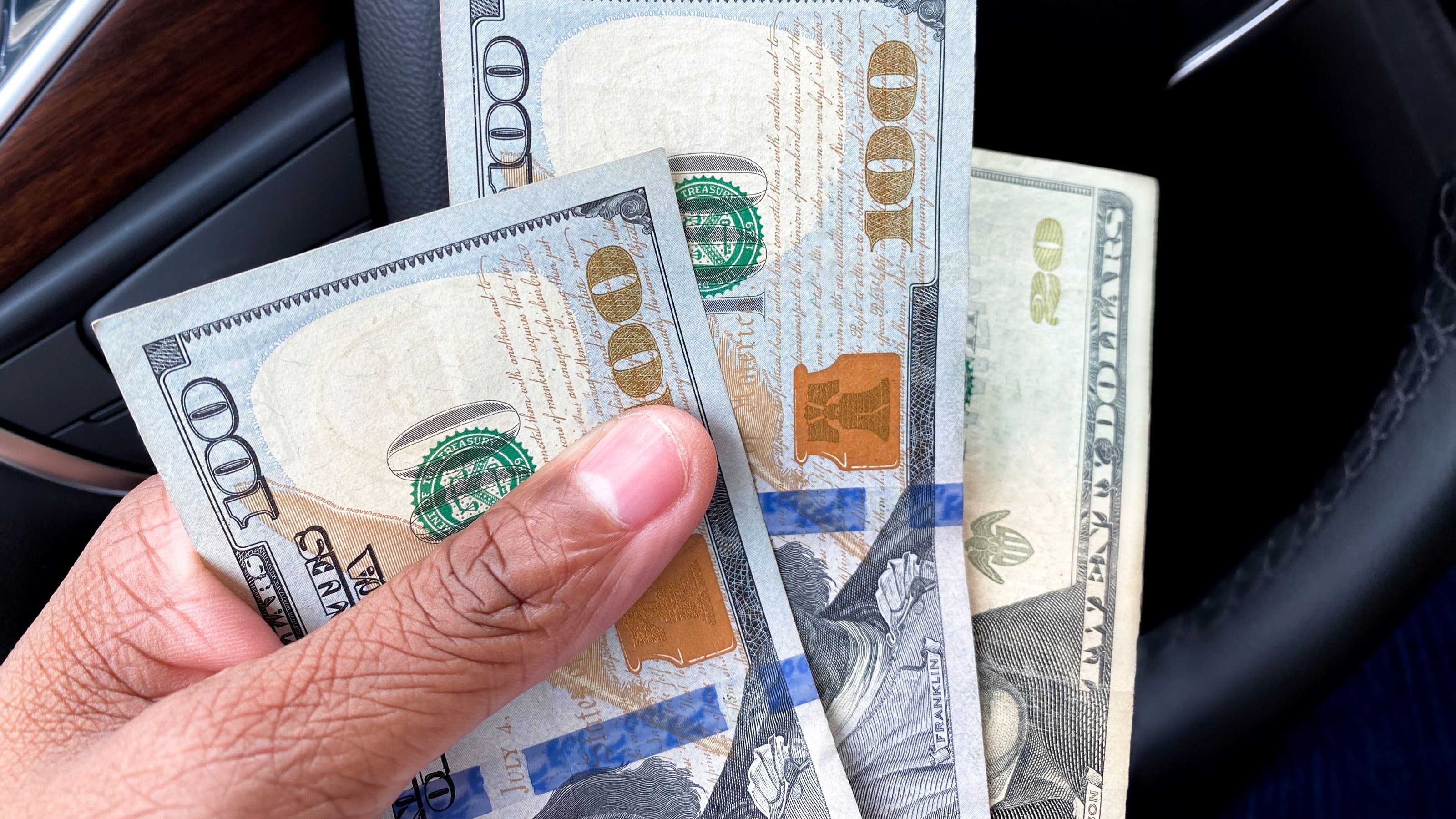
Profit and prosper with the best of Kiplinger's advice on investing, taxes, retirement, personal finance and much more. Delivered daily. Enter your email in the box and click Sign Me Up.
You are now subscribed
Your newsletter sign-up was successful
Want to add more newsletters?

Delivered daily
Kiplinger Today
Profit and prosper with the best of Kiplinger's advice on investing, taxes, retirement, personal finance and much more delivered daily. Smart money moves start here.

Sent five days a week
Kiplinger A Step Ahead
Get practical help to make better financial decisions in your everyday life, from spending to savings on top deals.

Delivered daily
Kiplinger Closing Bell
Get today's biggest financial and investing headlines delivered to your inbox every day the U.S. stock market is open.

Sent twice a week
Kiplinger Adviser Intel
Financial pros across the country share best practices and fresh tactics to preserve and grow your wealth.

Delivered weekly
Kiplinger Tax Tips
Trim your federal and state tax bills with practical tax-planning and tax-cutting strategies.

Sent twice a week
Kiplinger Retirement Tips
Your twice-a-week guide to planning and enjoying a financially secure and richly rewarding retirement

Sent bimonthly.
Kiplinger Adviser Angle
Insights for advisers, wealth managers and other financial professionals.

Sent twice a week
Kiplinger Investing Weekly
Your twice-a-week roundup of promising stocks, funds, companies and industries you should consider, ones you should avoid, and why.

Sent weekly for six weeks
Kiplinger Invest for Retirement
Your step-by-step six-part series on how to invest for retirement, from devising a successful strategy to exactly which investments to choose.
In every stage of life, having a financial cushion (cash on hand) can prepare you for potential emergencies and provide some peace of mind.
While most experts recommend maintaining three to six months' worth of basic living expenses in an emergency fund, the amount of cash you really need depends on a few factors, including your current life and financial situation, your risk tolerance and your goals.
Consider your situation
Determining how much money you need depends largely on your current financial needs and risks.
From just $107.88 $24.99 for Kiplinger Personal Finance
Become a smarter, better informed investor. Subscribe from just $107.88 $24.99, plus get up to 4 Special Issues

Sign up for Kiplinger’s Free Newsletters
Profit and prosper with the best of expert advice on investing, taxes, retirement, personal finance and more - straight to your e-mail.
Profit and prosper with the best of expert advice - straight to your e-mail.
"If you're single, you might be comfortable with less than six months of savings," said Carl Holubowich, CFP, principal at D.C.-based financial planner, Armstrong, Fleming and Moore. "But if you have a spouse, kids and a mortgage, or if you worry about replacing a lost job or other income quickly, you likely need six months or even more."
Putting more cash in savings, like one of the best high-yield savings accounts, is also a good idea for prospective homebuyers who want to establish a sizable down payment, which is especially important as 30-year mortgage rates are still high.
If you're nearing retirement, you may want more than the standard six-month requirement to preserve the wealth you've built in case there's a bear market and your investments don't meet your expectations.
"Keeping two- or three-years’ worth of expenses can provide a safety net to help get you through a down stock market," says Holubowich.
Evaluate your risk tolerance
Consider the degree of risk you're willing to endure. The term is generally used for investors who can experience a lot of short-term volatility with their investment portfolios, but it can also apply to emergency savings.
If you tend to feel a lot of anxiety about a potential job loss or other major financial emergency, it may make sense to save more money to put your mind at ease. But if you're less worried about emergency expenses that may or may not happen, and you'd rather use your money for other financial goals, a smaller emergency fund may be a good fit for you.
Align your savings with your goals
While a solid emergency fund is important for managing financial risks, it's just one aspect of your overall financial plan. Depending on your cash flow, you may be able to work toward multiple savings goals at the same time, or you may need to prioritize one goal at a time.
The key is to consider the benefits of all of your financial goals to determine how to manage your money more effectively.
If your employer offers a 401(k), complete with a contribution match, for instance, it may make sense to maximize that match instead of putting that money into a savings account because it's essentially a 100% return on your investment and can accelerate your retirement savings plan.
If you have high-interest credit card debt, it could be a good idea to build up a small emergency fund to give you a buffer, then tackle your debt to free up more cash flow once you pay off your card's debt.
Determine hard numbers for your situation
As you consider your current situation, risk tolerance and goals, come up with a figure for cash on hand that will give you peace of mind. You may land on this number based on your monthly income or basic necessities, or you may simply use a flat amount that makes you comfortable.
Whatever you do, take your time to understand your situation, so you can come up with an amount that works best for you.
Related Content
Profit and prosper with the best of Kiplinger's advice on investing, taxes, retirement, personal finance and much more. Delivered daily. Enter your email in the box and click Sign Me Up.

Ben writes about all things personal finance, including consumer credit, credit cards, mortgages, student loans, investing and budgeting, as well as travel. Before his career as a writer, Ben worked in financial planning and insurance, banking and auto financing. After working as a staff writer at NerdWallet and Student Loan Hero, he started freelancing full time in 2018. Ben earned a B.S. in business administration with a finance emphasis from Brigham Young University. He lives near Salt Lake City with his two kids and two cats.
-
 Ask the Tax Editor: Federal Income Tax Deductions
Ask the Tax Editor: Federal Income Tax DeductionsAsk the Editor In this week's Ask the Editor Q&A, Joy Taylor answers questions on federal income tax deductions
-
 States With No-Fault Car Insurance Laws (and How No-Fault Car Insurance Works)
States With No-Fault Car Insurance Laws (and How No-Fault Car Insurance Works)A breakdown of the confusing rules around no-fault car insurance in every state where it exists.
-
 7 Frugal Habits to Keep Even When You're Rich
7 Frugal Habits to Keep Even When You're RichSome frugal habits are worth it, no matter what tax bracket you're in.
-
 No-Fault Car Insurance States and What Drivers Need to Know
No-Fault Car Insurance States and What Drivers Need to KnowA breakdown of the confusing rules around no-fault car insurance in every state where it exists.
-
 7 Frugal Habits to Keep Even When You're Rich
7 Frugal Habits to Keep Even When You're RichSome frugal habits are worth it, no matter what tax bracket you're in.
-
 How Much It Costs to Host a Super Bowl Party in 2026
How Much It Costs to Host a Super Bowl Party in 2026Hosting a Super Bowl party in 2026 could cost you. Here's a breakdown of food, drink and entertainment costs — plus ways to save.
-
 3 Reasons to Use a 5-Year CD As You Approach Retirement
3 Reasons to Use a 5-Year CD As You Approach RetirementA five-year CD can help you reach other milestones as you approach retirement.
-
 How to Watch the 2026 Winter Olympics Without Overpaying
How to Watch the 2026 Winter Olympics Without OverpayingHere’s how to stream the 2026 Winter Olympics live, including low-cost viewing options, Peacock access and ways to catch your favorite athletes and events from anywhere.
-
 Here’s How to Stream the Super Bowl for Less
Here’s How to Stream the Super Bowl for LessWe'll show you the least expensive ways to stream football's biggest event.
-
 The Cost of Leaving Your Money in a Low-Rate Account
The Cost of Leaving Your Money in a Low-Rate AccountWhy parking your cash in low-yield accounts could be costing you, and smarter alternatives that preserve liquidity while boosting returns.
-
 This Is How You Can Land a Job You'll Love
This Is How You Can Land a Job You'll Love"Work How You Are Wired" leads job seekers on a journey of self-discovery that could help them snag the job of their dreams.
